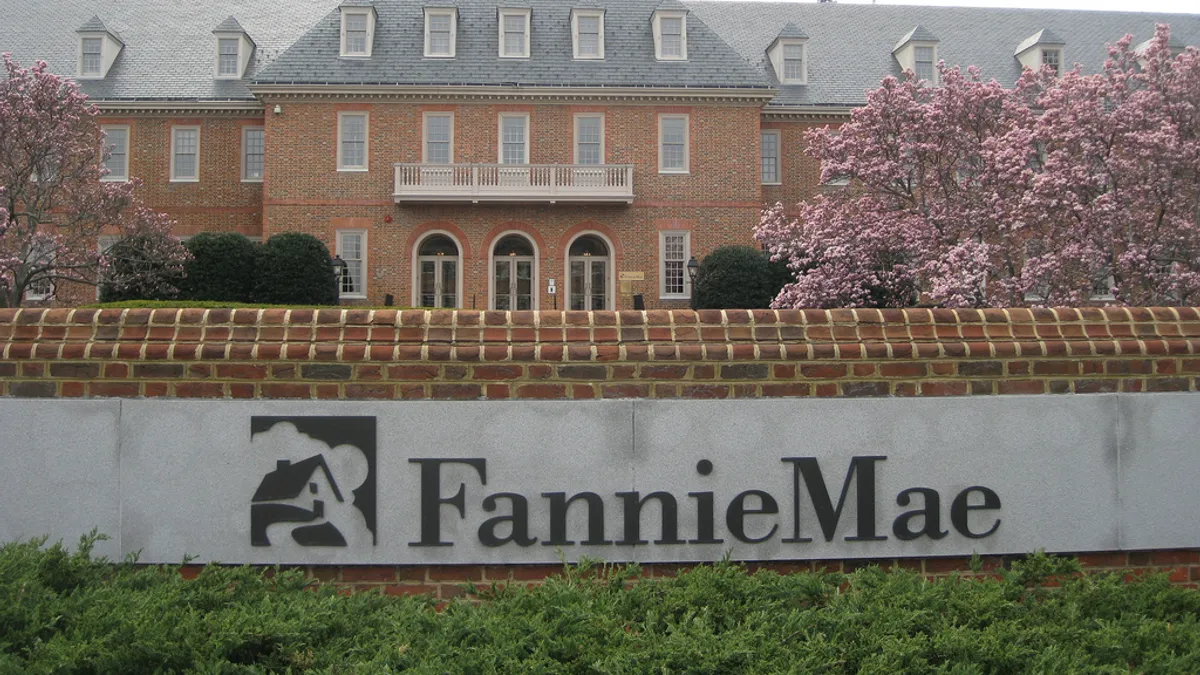Dive Brief:
- The Federal National Mortgage Association (Fannie Mae) is offering a mortgage option dubbed HomeStyle Energy Mortgage to finance distributed generation, energy efficiency, and water efficiency improvements for property and home owners.
- Under the program, homeowners and certain property owners can finance clean energy upgrades equal to or up to 15% of completed, appraised value of their hone if the home energy report is approved by Fannie Mae. The potential borrower can also finance up to $3,500 in water efficiency upgrades without a report.
- The Rocky Mountain Institute notes this is the lowest cost of captial for new solar installations to date. In addition, Greentech Media pointed out the mortgage option can be added at the time of getting a mortgage or taking unsecured or Property-assessed clean energy (PACE) loans instead of being linked to the property's tax bill.
Dive Insight:
This low-cost way to finance energy efficiency and solar upgrades has been, until now, a largely untapped market, RMI noted.
"To date, this market is the largest untapped source of low-cost capital that the solar industry can leverage for the benefit of homebuyers and mortgage refinancers. A new source of low-cost capital is increasingly important in order to accelerate solar industry growth, as some solar leasing companies have seen their own cost of capital rise in recent months or had access to capital shut off completely," RMI noted in their blog post.
It's also an important breakthrough for owners who finance their homes through Fannie Mae because contractual complications make them ineligible for property assessed clean energy (PACE) loans. The popular PACE loans provide no-down-payment 100% financing for energy, energy efficiency, and water efficiency upgrades that are repaid through property tax assessments.
These new sources of low-cost capital for solar installations is a potential "gamechanger" as solar developers heading third party ownership (TPO) programs driving a large chunk of the solar's growth are facing higher costs for capital, according to RMI.














